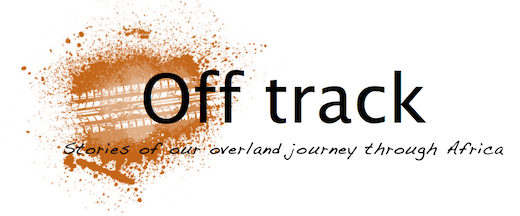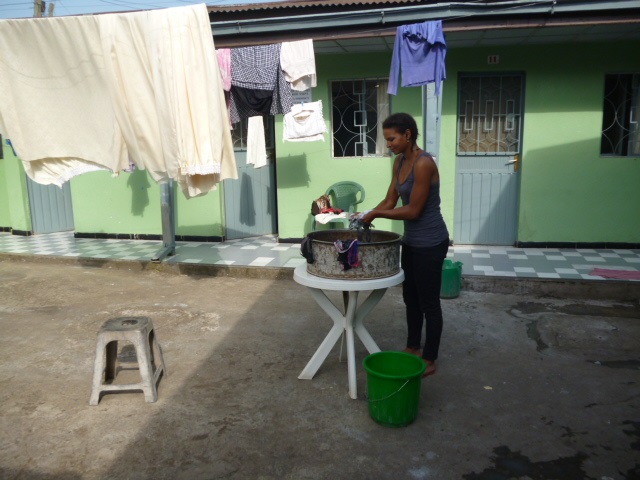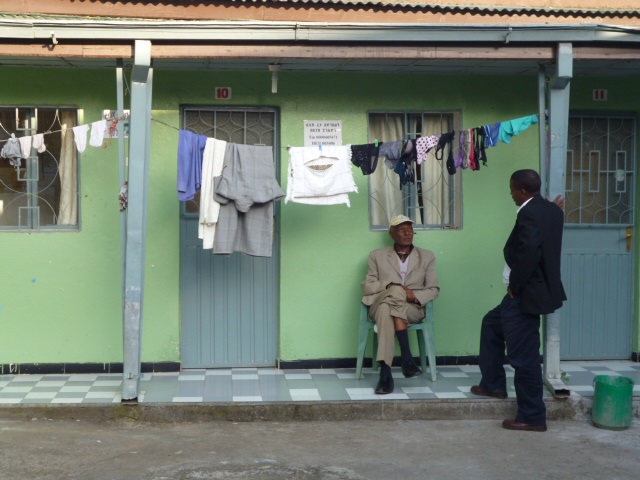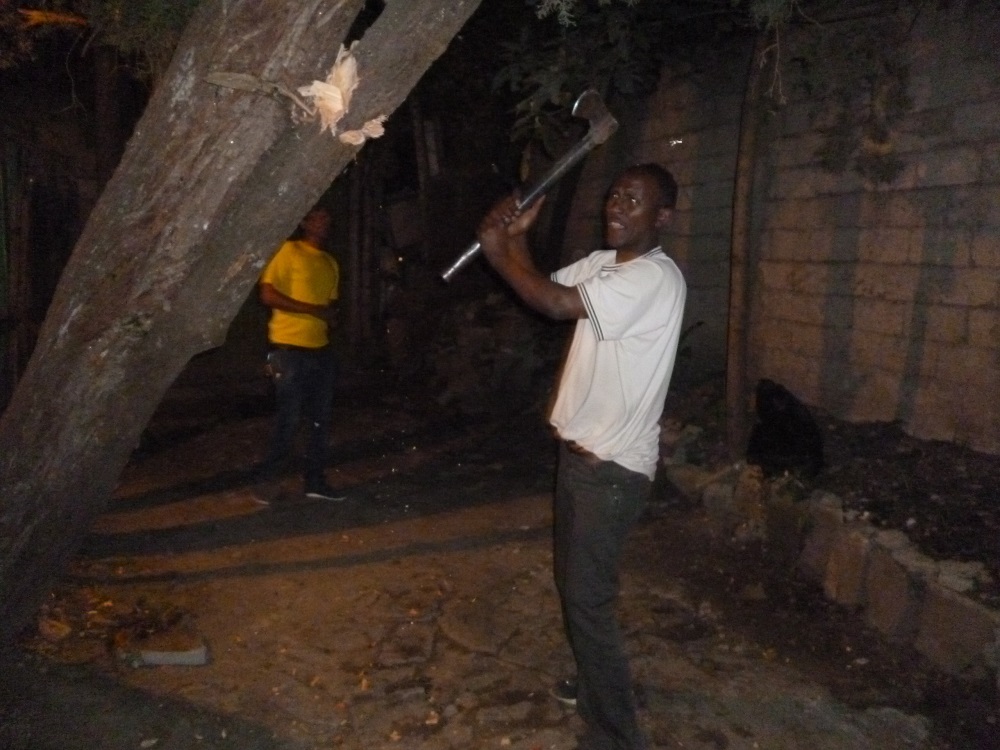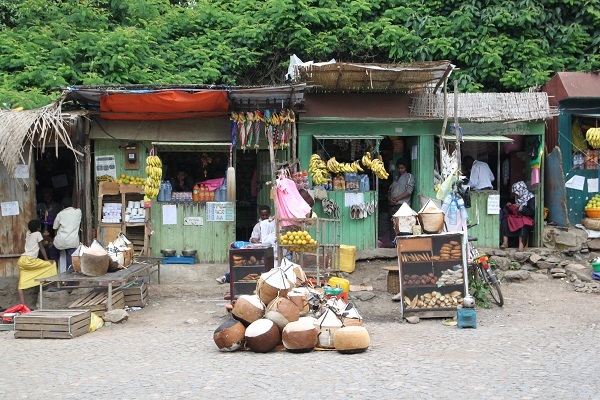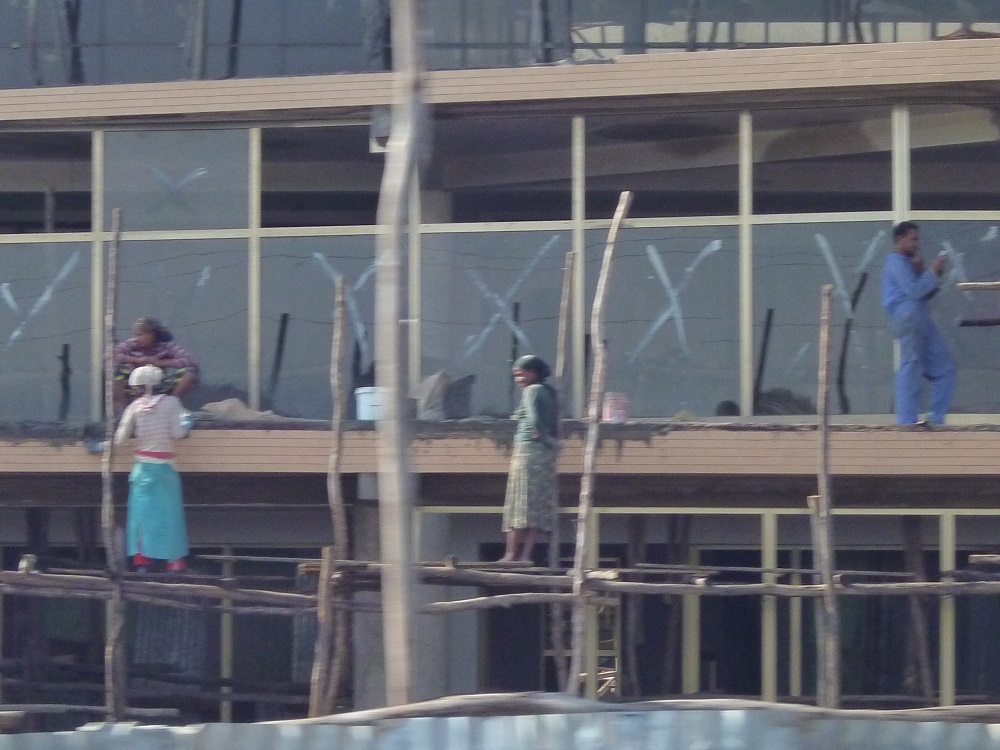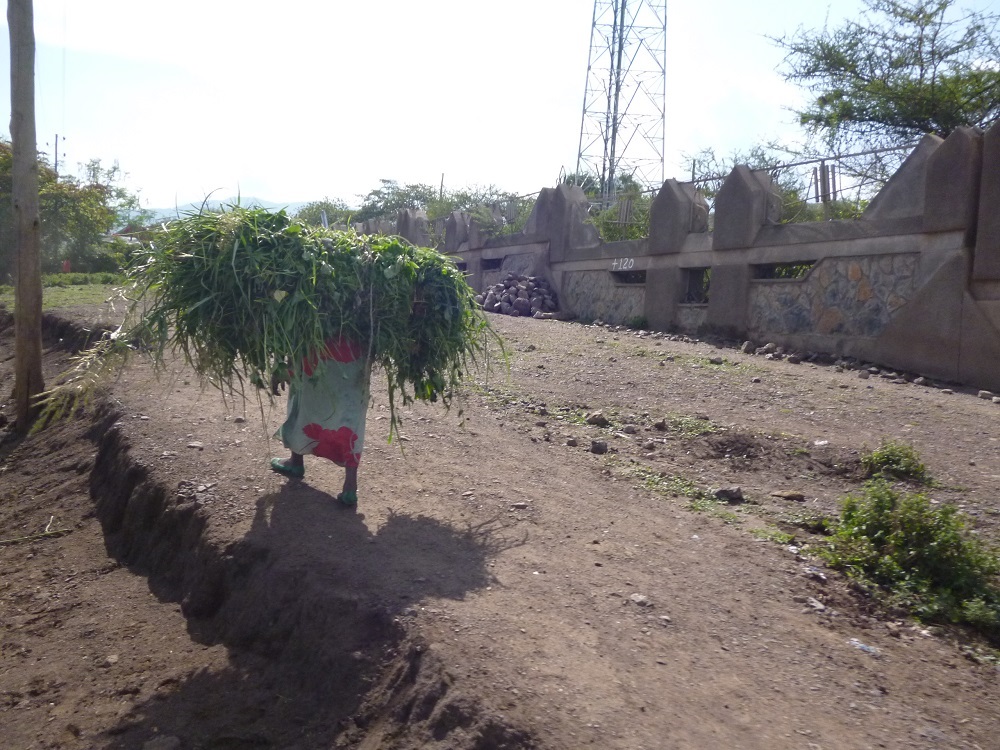The Sheep thrower and Other Random Stories
Long days of radio silence, because here in the South, Wifi is as rare as finding clean toilets.
During our 6 weeks here, we have come to really appreciate Ethiopia (apart from some not so nice habits) and got used to the African pace. Let us share some of these experiences with you.
Africans have the time
African service and way of doing things is like driving on the A13 highway in the Netherlands during rush hour: it is very slow and inefficient. Everything takes a long time and people take it slow. This slowness is not only visible in the fact that a fruit shake takes 20 minutes, breakfast 40 and dinner sometimes more than one hour, but it is also a typical posture and look in the eyes. You order, the waitress stares at you, as if she didn’t hear correctly. After a few seconds she turns around and slouches back to the kitchen. We often have to reorder, because an item was forgotten. It’s not that people are unwilling, it just looks like they haven’t fully awoken yet or they have to switch from a sort of ‘snooze-like’ mode to an ‘active’ mode.
Us German and Dutchie are gradually switching to African pace. Some activities just take far longer than they would in Europe:
– Doing groceries in Europe: 30 minutes. In Africa: up to 2 hours. Depends on what you need, but finding bread can be an hour-consuming business. Shops have no signs and no ‘showrooms’, which forces us sometimes to jump into 10 shops in a row.
– Getting money in Europe: 5 minutes. In Africa: up to 3 hours. Sometimes there is no ATM, sometimes there is an ATM but without service to our German bank, sometimes there is an ATM but there is no money in it and you wait until the money guy comes to replenish. Sometimes there is an ATM but there is no internet connection to Visa.
– Laundry in Europe: 30 minutes. Laundry in Africa: up to 4 hours. Every underpants, every sock, every towel by hand. (I always try to dry my underwear in a discrete place, but in this case I wasn’t lucky and these men made themselves comfortable right under my laundry. Awkward!)
So you can imagine, we can easily fill our days with the absolute basics. In Africa they have a proud saying: ‘the Europeans invented the watch, but Africans have the time.’ If you can’t beat it, join it!
In Africa, anything is possible
We don’t mind the grandmother-behind-the-stroller pace and the unstructuredness. In fact, we love it. Because it brings opportunity! Everything can be arranged, Africa is the ‘sjacheraars’ paradise. One time, we were short on cash at the Sudanese border to Ethiopia. In Sudan, it’s not possible to get money with any bank card, so we had to get cash up front. We calculated exactly how much we’d need. If things turned out to be more expensive, we figured that we could change some of our emergency dollars. So far, so good.
A short background story: in Egypt, the customs forced us to buy 2 fire extinguishers. They were deaf to the fact that we already had one in the car. “No, 2 are compulsory.” “But sir, we already have one, so when the law says we need 2, we only need to buy one extra.” “No, yours is no good (without laying eyes on it), you need to buy these 2.” Conny fought his battle, but the guy wouldn’t budge. “No extinguishers, no car.” What choice do you have as overlander? So we left the Ethiopian port with 2 large proofs of Egyptian corruption.
Back to the Sudanese border. Of course, we didn’t have enough cash to get our visa and pay customs. So Conny dug out some dollars while I waited at the customs office and made some nice chitchat over tea with the officers on duty. Conny asked him where the exchange office was. He pointed out a rickety shack with a guy laying on a bed. When Conny approached the guy, he didn’t bother to sit upright, hand tucked firmly in his pants. “Where’s the exchange office?” Conny asked. “I’m the exchange office.” Mr. Lazy Ass turned out to be the local cash king, who knew his business well: people exchanging at the border are desperate. And desperation means cash. So he asked a ridiculous exchange rate. Connies Swabian genes forced him to pull back and admit defeat. From this one battle, not from the war…
He thought of other ways to get money and a great idea popped up: selling one of our 2 big, red fire extinguishers that were taking too much space in the car. Hussler guy was interested. He even sat upright when looking at the brand new load. But again he knew his business and offered a ridiculous low price. And again, Connies inner ‘Scrooge’ forced him to retreat.
In the meantime, I had made friends with the customs officers and shared tea with them when Conny returned with one extinguisher. He placed it in the middle of the circle, presenting it for sale. We told them the story of Egyptian customs and we showed our big red friend. They looked interested, but were mostly amused by our story. More chitchat, more tea. I opened: “you have a beautiful office, lots of wood. Interest in buying one of these beauties?” More laughter, more tea. Conny continued: “brand new, super quality. Never used. I think it would really improve your safety if you had one of these.” Still things didn’t look promising. But suddenly we saw the head chief customs with a large bundle of money, which he put on Connies lap. We were shortly puzzled, but our attempt had succeeded! He bought our extinguisher for such a good price that we could buy visa, pay customs and, as an unexpected bonus, fill up with cheap Sudanese diesel. We lost some battles, but won the war. Hooray for Africa!
They are very pragmatic, shown for example that time when we wanted to park at a lodge but the car didn’t fit on the parking lodge. The owner just took an axe to hand and cut our way to a good night.
Diet coke? What is that?
Another sharp contrast to Europe, is the meagre availability of products. Understandable, because this country suffered from famine still a decade ago. There are hardly any supermarkets (at least nothing what we would call supermarket). There are small shops with tin roofs, all carrying the same line: pasta, tomato concentrate, noodle soups, soft drinks, beans, porridge and other products that survive a fridgeless environment. That’s about it. It has been very difficult to find things that are obvious to us: toilet paper, something else to put on bread instead of the red chemical jelly that goes as sorry excuse for marmalade. No yoghurt, cheese, very little fresh vegetables, only overpriced chicken. Light soft drinks are non-existent. But then again, so are overweight Ethiopians. And judging by the many skin-and-bones locals, they can use the sugar.
So when we cook ourselves, we keep to sweet bread, beans, injera and pasta with strange red sauce. Conny misses his French cheese and German sausage and eats like a socialite wanting to fit into size zero: almost nothing. He lost so much weight that he’s practically swimming in his clothes.
Doing well with the bricks, madam!
You thought feminism was a Western thing? Think again. What we have seen here, we haven’t seen in any other country before: women in men professions. And I don’t mean the sissy stuff like working in offices from 9 to 5, but the real thing. The muscle and sweat part. Ethiopian women work as brick layer, construction worker, painter. They pour concrete, clean shoes, transport wood and water on their backs and work as car mechanic. We were very impressed. I had the faint hope that feminism would have been a fully accepted part of Ethiopian society. That if women were doing men’s jobs, men would also be doing women’s jobs. Indeed, I’ve read that compared to other African countries, women do have a relative equal position to men. But, when I was invited to a coffee ceremony at a local family, the husband explained that in Ethiopia, no self respecting man would ever set foot in a kitchen, nor would even consider to take a broom to hand or attend to the kids. So it seems that women just got the worst of both worlds…
The sheep thrower
Another peculiar thing we already told you about, is the stone throwing. Conny is very annoyed by this. I see his jaw tightening when another bunch of kids comes running towards the bus. One day, we weren’t even on the road for more than one hour and we already had our share of kids demanding “You you, give me money!”, “give me pen!”, “Give me banana!”
We saw some new menaces running downhill when we shortly paused. They were herding sheep and the car was surrounded by animals. When we didn’t give them what they requested, one of the boys bend over, swung his wooden stick and hit it against the car. Conny exploded, hit the brakes, got out and ran after the boys. However they were a lot faster than him, so he dug his hands into the first thing he could reach, which turned out to be a sheep. With a grand swing, he threw the sheep several meters away. The boys called us names, the sheep landed on his woollen left side. After it rose to its feet, it stared around a few seconds before taking his first shaky steps forward. In case the WFPA reads this: it had no injury.
Seeing the combination of Connies face, the screaming boys and the flabbergasted sheep flying through the air, I cracked up laughing. It was hilarious. We laughed the entire rest of the dirt road.
Being commercial 2.0: Sigaar uit eigen doos
Some Ethiopians are so utterly commercial, they know how to squeeze that dollar, or in this case euro, from a traveller. And they do it scrupulously, the shrewd little foxes.
Their tactics: first, they pretend to be students just wanting to help to clueless travellers. We met two of those in Lalibela, passing us by in the street. It happened quickly: “Are you Americans? I have a dollar” holding the dollar note proudly. “Want to have it?” Surprised, because it was the first time somebody offered money instead of asked for it. In an impulse, I grabbed the note and put it in my pocket, saying “Thanks mate!” I walked on, leaving the boys flabbergasted behind. After 10 seconds, we returned the dollar and engaged in conversation. He told us that he collected coins from Western countries, and he was dying to get his hands on a pound and a euro. It sounded innocent, because you can’t change one coin at the bank nor spend it there, so there seemed only sentimental value to it. We had a good talk and he showed us a very good and cheap restaurant. We were glad to have met somebody who seemed honest. So we surrendered: “tomorrow we give you a euro as a present. Worth 25 Birr, so it is a good present.”
When we met next day, we somehow had an awkward feeling. Not at all the same lightness as the day before. But we paid no attention to it. The young man was happy with his euro. But at the moment we said goodbye, our guy gave the euro to a smaller boy, who immediately ran after us. He pulled Connies arm and said boldly: “You European, want to buy this euro? Only 15 Birr.”
This time we were flabbergasted. Our illusions got smashed right then and there. But I also felt a laughter inside. That we, stupid tourists, hit a genuine tourist trap. Well done boys!
But despite these stories, or even because of these stories, we would recommend anybody to visit Ethiopia. Great place to work on your bargaining skills and sixth sense for people. The food in restaurants is great and very cheap and the landscapes are marvelous. We are still very happy to be here and will be enjoying our last 2 weeks in the South.
Next time more stories about being on Ethiopian roads and the origins on the Rastafari movement!
